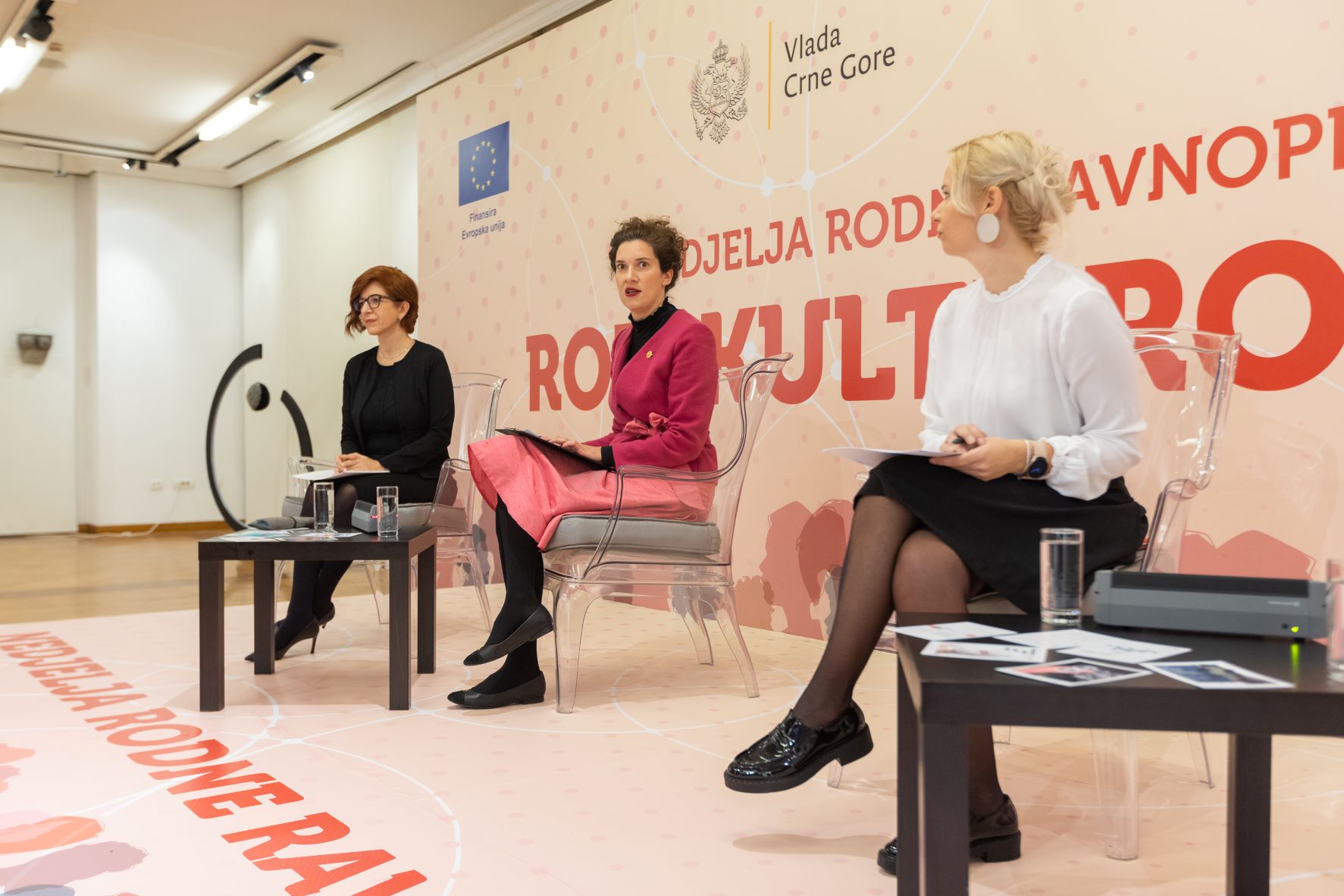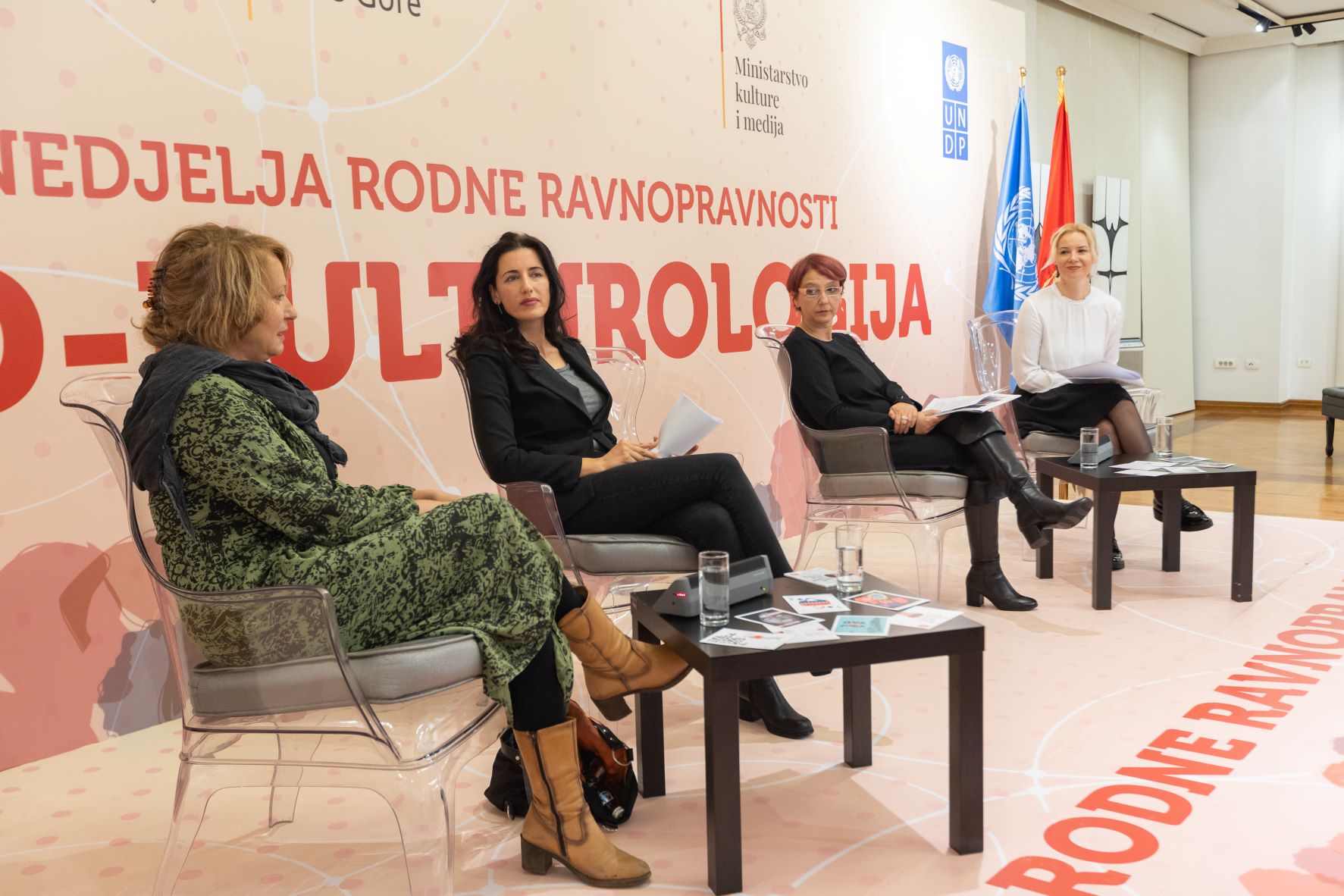Culture as a platform for challenging patriarchal norms and establishing new values
December 2, 2022

Podgorica, 2 December 2022 – The degree of gender equality is a measure of the democratisation of society, while culture, as a multidisciplinary field, has an immeasurable potential not only to review, but also to transform social norms that condition gender inequality – it was said at the "Gender – culturology" panel discussion held during the fifth day of Gender Equality Week.
Recognising that socially engaged art is a space for gathering and thinking about a better and fairer society, and that culture and the media are active and powerful allies in achieving that goal, UNDP has already implemented a series of activities that, through the field of culture, offered various mechanisms for questioning existing patriarchal norms, which raised debates among prominent participants in the cultural life of Montenegro.
By deepening the cooperation with the Ministry of Culture and Media, another step has been taken towards opening the space for promoting engaged art as one of the mechanisms for achieving gender equality.
The panel, which was held at the Ministry of Culture and Media in Cetinje, was an opportunity to reconsider the challenges faced by women in various cultural activities, as well as examples of positive practices of engaged art for the purpose of achieving gender equality. The panel participants had the opportunity to see examples of engaged art through the exhibitions set up in the premises of the Ministry - "Awakening" and "She needs, she must".

UNDP Resident Representative for Montenegro, Daniela Gasparikova, assessed that culture is a reflection of social discourse and the state of society, and reminded that UNDP, in the context of various partnerships, has already carried out a series of activities in the field of culture, with the aim of challenging patriarchal norms and the notion of tradition.
"By raising issues that go deep into understanding cultural identity and using innovative methods, we re-examine the application of women's rights in culture. I believe that the exhibitions we are attending today, as well as the one whose catalogue we are promoting, represent the added value to culture, the value of thoughtful, activist and artistic provocation, which sets processes in motion, and encourages us all to work harder and better, until the full realisation of the principle of gender equality and society of equal opportunities for all", Gasparikova said.
Minister of Culture, Masa Vlaovic, said that gender equality was one of the critical preconditions for general cultural emancipation and support for processes that encourage social cohesion. "However, gender differences are still present in almost all cultural and creative sectors. In addition to all the efforts and invested resources, we, the women of Montenegro, still seek our participation in politics through the equations, which provide us with the minimum and necessary participation in key decision-making places. In that equation, I am one of four, now even three ministers in the Government, which has 18 departments. That's why I make strong and dedicated efforts to ensure that where I have the opportunity to make decisions, the female voice is represented and strong", Vlaovic said.

Panellists Milena Jovicevic, Maja Bogojevic and Ana Matic agree that engaged art has the greatest potential in combating gender stereotypes in culture, and that cultural workers have a special responsibility in preserving human rights and democracy, since culture reaches the greatest number of individuals and generates much-needed changes.

 Locations
Locations








